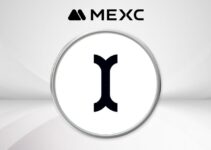In June 2024, a significant development took place when Circle, a leading financial services company and deployers of USDC, announced its expansion into the Solana blockchain. This move brought with it the introduction of programmable wallets – a game-changer for both developers and users.
What are Programmable Wallets?

Programmable wallets, as the name suggests, are a new breed of wallets that allow users to automate specific actions within the blockchain ecosystem. These actions can be triggered by predefined conditions, eliminating the need for manual intervention.
Imagine a digital wallet that can do more than just store your cryptocurrency.
For example, a programmable wallet could be set up to automatically transfer a portion of your salary (paid in a stablecoin like USDC) into a savings account every month. Another example could involve automatically executing a trade when a specific price point is reached. This level of automation streamlines transactions and offers users greater control over their crypto assets.
Circle and Solana:
Circle’s entry into the Solana blockchain marks a strategic move for both parties. Circle is a well-established player in the crypto space, known for its popular stablecoin, USDC. Solana, on the other hand, is a rapidly growing blockchain platform known for its high transaction speeds and scalability.
By integrating programmable wallets with Solana, Circle leverages the platform’s technical prowess to offer a user-friendly and efficient solution for managing digital assets. Statistics show that Solana is processing transactions at an impressive rate, exceeding tens of thousands per second. This high throughput allows Circle’s programmable wallets to function seamlessly, enabling users to automate tasks without experiencing network congestion or delays.
Benefits for Developers and Users
The introduction of programmable wallets on Solana offers a plethora of benefits for both developers and users.
- Developers:
- Simplified Wallet Integration: Circle’s programmable wallets provide developers with a ready-made solution for integrating secure and feature-rich wallets into their applications. This saves developers significant time and resources compared to building their own wallet infrastructure.
- Enhanced User Experience: By enabling features like automated transactions and fee sponsorship (eliminating gas fees for users), programmable wallets create a smoother and more user-friendly experience for app users.
- Users:
- Streamlined Transactions: Programmable wallets empower users to automate repetitive tasks, saving them time and effort. Imagine setting up a recurring investment or automatically transferring funds to a specific wallet based on market conditions.
- Reduced Friction: Circle’s integration with Solana eliminates the need for users to manage gas fees, a common pain point in other blockchain ecosystems. This simplifies transactions and makes interacting with decentralized applications (dApps) more accessible.
- Enhanced Security: Circle, as a regulated financial institution, prioritizes user security. Their programmable wallets are built with robust security measures to safeguard user funds and private information.
Looking at the Numbers: Early Adoption and Future Prospects
While it’s still early days for programmable wallets on Solana, some statistics indicate promising signs of adoption. Circle has already announced partnerships with several prominent players in the Solana ecosystem, demonstrating the potential of this technology. The ease of use, efficiency, and innovative features offered by programmable wallets are likely to attract a growing user base in the coming months and years.
Beyond the Hype: Building a Sustainable Ecosystem
For programmable wallets to reach their full potential, a strong foundation needs to be established. Here are some key factors to consider:
- Security: As with any financial technology, security remains paramount. Circle’s experience and commitment to security are crucial for building trust with users.
- Standardization: Clear and consistent standards are essential for developer adoption and user experience. Collaboration within the Solana community is vital to ensure smooth integration of programmable wallets across various applications.
- Regulatory Clarity: The evolving regulatory landscape surrounding cryptocurrency requires ongoing dialogue between industry players and regulatory bodies. This will ensure a healthy and sustainable ecosystem for programmable wallets on Solana.
Conclusion: A New Dawn for Automated Transactions
Circle’s launch of programmable wallets on Solana marks a significant step forward for the cryptocurrency space. These innovative wallets empower users with automation capabilities and streamline transactions, while offering developers a powerful tool for building user-friendly applications. While challenges like security, standardization, and regulation remain, the potential of programmable wallets to transform the way we interact with our digital assets is undeniable. As the technology matures and the ecosystem evolves, we can expect to see even more innovative use cases emerge, paving the way for a future of automated and efficient crypto transactions.
Personal Note From MEXC Team
Check out our MEXC trading page and find out what we have to offer! There are also a ton of interesting articles to get you up to speed with the crypto world. Lastly, join our MEXC Creators project and share your opinion about everything crypto! Happy trading! Learn about interoperability now!
Join MEXC and Get up to $10,000 Bonus!
Sign Up


